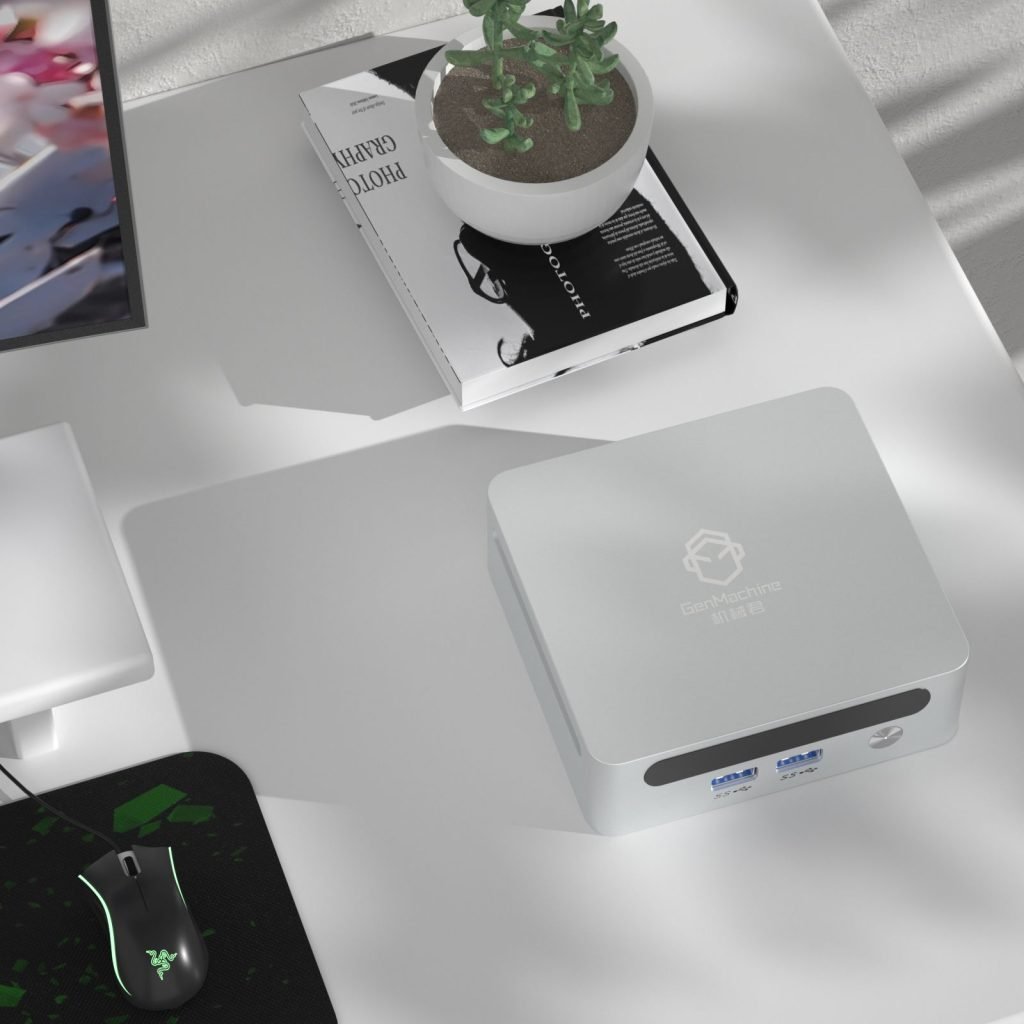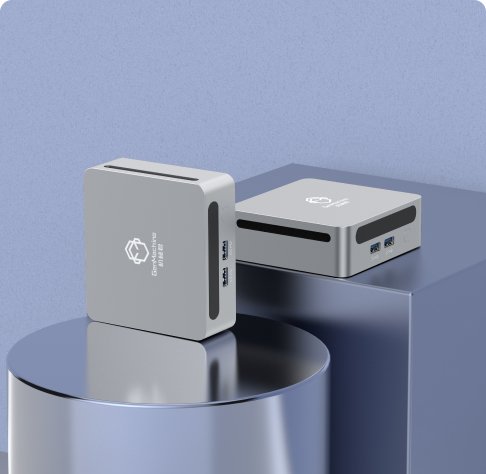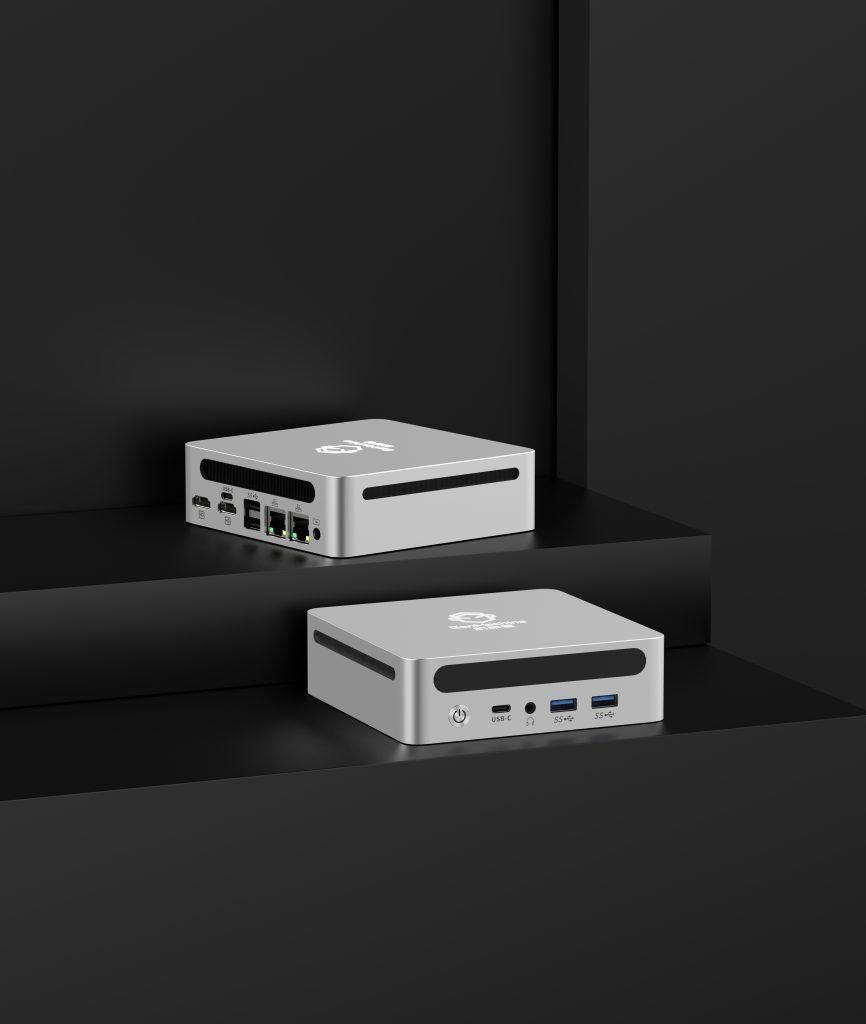Educational Mini PC Promotes Educational Innovation
In today’s era of rapid development of science and technology, the field of education is undergoing profound changes, and digital learning has gradually become the mainstream trend. With its unique advantages, educational Mini PC is playing an increasingly important role in the process of educational innovation, ushering in a new era of digital learning.

Overview of Mini PC and its development in education
Genmachine Mini PC is a small but fully functional personal computer, which integrates core components such as processor, memory, storage and graphics card. Although it is small, it can cope with a variety of daily computing tasks. With the development of technology, its performance has been continuously improved, which is enough to undertake high-definition video playback, multitasking and complex software operation.
In the field of education, educational Mini PC has experienced a process of gradual development and wide acceptance. In the early days, the traditional desktop computer dominated educational institutions, but it was difficult to adapt to the diverse needs of educational scenes due to its limitations such as large size, high energy consumption and inconvenient deployment and management.
The appearance of educational Mini PC changed some situation. Take Genmachine as an example, its educational Mini PC adopts advanced hardware architecture, such as equipped with high-performance Intel Core series processors, which provides powerful data processing capabilities, and its memory and storage capacity can also meet the storage requirements of educational software and learning materials. Rich interfaces facilitate the connection of external devices such as projectors and printers, creating convenient conditions for teaching activities.
In the deployment of educational institutions, Genmachine Mini PC can be managed centrally through the network. School IT administrators can easily update the system, install and configure the software, reduce the management cost and maintenance difficulty, and are especially suitable for schools or training institutions with a large number of computer equipment to ensure a stable and consistent teaching environment.

How does Mini PC improve the flexibility of the educational environment
1. Portability and flexibility
Genmachine Mini PC’s small size gives it excellent portability and flexibility. In traditional teaching, the position of computer equipment is fixed, so it is difficult to move and allocate it as needed. Genmachine Mini PC can be easily carried to different teaching places by teachers or students. For example, in a comprehensive school, teachers can carry it to teach in various classrooms, and simply connect the projector, monitor and power supply after arriving at the classroom, so as to quickly build a multimedia teaching environment, improve classroom efficiency and create a dynamic learning atmosphere for students.
In group discussion or project cooperative learning, students can move educational Mini PC to share learning resources, display achievements and carry out teamwork. For example, in the art design course group project, students connect the educational Mini PC to the display screen to jointly display and discuss the design scheme, so as to promote the exchange of ideas and the collision of ideas.
Its installation methods are diverse, including desktop placement, wall-mounted installation or hidden installation, which can be flexibly adjusted according to the teaching environment. In the classroom or library study area with limited space, wall-mounted installation can save space without affecting the use, providing more choices for the optimization of educational environment.
2. Multipurpose application
Although Genmachine Mini PC is small in size, it has powerful multi-purpose application capability. Genmachine Mini PC supports all kinds of mainstream educational application software, covering basic subject teaching to professional skill training.
In terms of basic subjects, in the teaching of Chinese, mathematics, English and other courses, teachers can use their installation courseware making software to make vivid courseware, and use electronic whiteboard software to realize writing, marking and other operations to improve teaching effect. In the science course, the simulation software of physics experiment allows students to operate the experiment virtually, avoid the damage of equipment and safety risks, and deepen their understanding of physics principles; Chemical experiment simulation software helps students understand the chemical reaction process intuitively.
In professional skills training courses, such as computer programming, graphic design, animation production, etc., educational Mini PC also performed well. Taking programming teaching as an example, Python, Java and other development tools can be installed so that students can write, debug and run the code. In the graphic design course, professional software such as Adobe Photoshop and Illustrator are installed, and students use their high-performance graphics cards and large memory to create design works smoothly.
In addition, Mini PC can also be used as a multimedia playback device to play educational videos and audio materials, enrich teaching content, broaden students’ horizons, and facilitate students’ autonomous learning after class.
The rise of digital learning and the role of Mini PC
1. The necessity of digital learning
The development of information technology promotes digital learning to become a key part of modern education. With the help of Internet, cloud computing, big data and other technologies, it breaks the time and space limitations of traditional learning and provides a convenient, efficient and personalized learning experience.
In terms of time, digital learning allows learners to access the online learning platform anytime and anywhere to obtain resources, participate in courses and discussions, meet different learning rhythms and schedules, and is suitable for busy people to improve themselves by using fragmented time. In space, we should break the geographical limitations, make learners contact with global high-quality educational resources, take courses from famous foreign universities through online courses, communicate and interact with teachers and students around the world, and cultivate cross-cultural communication and global competitiveness.
The personalized advantage of digital learning is remarkable. With the help of big data analysis, online learning platform provides personalized learning suggestions and path planning according to learners’ behaviour, progress and knowledge mastery. If learners encounter difficulties in knowledge, the platform automatically recommends counselling materials, exercises or video explanations to improve learning effect and efficiency.
2. Mini PC provides support for digital learning.
In the digital learning environment, educational Mini PC, as an important learning terminal, provides stable and efficient computing support for learners. Genmachine Mini PC has powerful performance, which ensures learners to run smoothly when browsing online learning platform, watching video courses and participating in interactive communication, avoiding the delay of jamming and ensuring learning continuity.
Its rich multimedia function is also an important support. The high-definition display interface is connected with an external display or projector to provide clear image display; The audio output interface is connected with headphones or speakers, which brings high-quality audio effects and enhances learning immersion. The storage function is convenient for learners to store a large number of learning materials, and some Mini PC support cloud storage to realize data backup and synchronization and prevent data loss.
The practical application case of Mini PC in education
1. Multimedia teaching in the classroom
In modern classrooms, educational Mini PC is the core equipment of multimedia teaching. For example, in the middle school Chinese class, teachers use Genmachine Mini PC to prepare exquisite courseware containing words, pictures and videos, and connect the projector with the sound system for display. When explaining ancient poems, play recitation videos and use electronic whiteboard software to mark key words to guide students to understand. Students can access the shared courseware through a tablet or notebook computer and take notes.
In math class, teachers run math teaching software, such as geometric sketchpad, to dynamically display concepts such as geometric figure change and function image drawing, and help students understand abstract knowledge. In English class, educational Mini PC plays soundtrack movies, animations and songs to create an immersive learning environment. Teachers can also use online platforms to organize activities such as oral practice and listening test. For example, students can communicate with foreigners through video calls to improve their oral expression ability.
2. Family study support
Family education is valued and online education resources are abundant, so educational Mini PC has become a good helper for family study. In the family of primary school students, parents equip their children with Genmachine Mini PC to assist in after-school study. Children can log on to the online platform of the school to complete their homework, take the test and watch the playback. In case of problems, they can visit the learning community through the Mini PC for advice. Parents can also install educational game software, so that children can learn knowledge and improve their interest in the game.
In middle school, students are under pressure to enter higher schools. Mini PC can help them download study materials and install study software. For example, when reviewing history courses, mindmanager is used to sort out knowledge points, which is convenient for memory and understanding. College students and vocational learners use Mini PC to study professional courses, write papers, participate in scientific research or vocational training, and improve their professional skills and competitiveness.

3. Data processing in the laboratory
In the school science and engineering technology laboratory, Mini PC undertakes the important tasks of data processing and experimental control. In the physics laboratory, Genmachine Mini PC is connected with experimental instruments to collect data, such as current and voltage data collected in electrical experiments, and then analyzed and processed by professional software, drawing charts and calculating errors to draw conclusions. In complex experiments, instrument parameters and experimental process can also be controlled, such as the precise adjustment of laser light source parameters in quantum physics experiments.
In the engineering technology laboratory, mechanical design students use Mini PC to run three-dimensional modeling software to design and model parts; Students majoring in electronic circuits use their running circuit design software to draw schematic diagrams and PCB designs, and connect test instruments to test and debug circuits, and collect and analyze data to verify the correctness and performance indicators of the designs.

Future Outlook: Combination of Mini PC and Education
1. Further innovation of educational hardware
In the future, scientific and technological progress will promote the continuous innovation of Mini PC in the field of educational hardware. In terms of hardware performance, the upgrade of the processor makes the Mini PC more powerful, and it can handle the educational content of virtual reality (VR) and augmented reality (AR). For example, in biology class, students use VR equipment and Mini PC to deeply observe the cell structure and biological evolution process, and enhance the intuition and interest of learning.
In terms of storage technology, the storage capacity of Mini PC will be increased with the increase of solid-state hard disk capacity and the decrease of price. If the new holographic storage technology is mature, it will bring about a qualitative leap in storage capacity, enabling it to store more high-definition video courses, large-scale educational software and massive learning materials.
With the development of display technology, high-resolution and high-refresh-rate displays become the standard. The development of flexible and foldable display technology may give birth to portable and diverse Mini PC designs, such as foldable tablet computer two-in-one devices, to meet the learning needs of different scenes.
In connection technology, 5G and higher-speed networks make Mini PC applications more flexible and efficient, and students can quickly download resources, upload homework and participate in interaction. With the development of Internet of Things technology, Mini PC is interconnected with other educational equipment to build an intelligent educational environment, such as automatically adjusting classroom lighting, air conditioning and other environmental parameters according to teaching scenes and students’ needs.
2. The transformation between teachers and students
In the new era of digital learning, the wide application of Mini PC has prompted a profound change in the roles of teachers and students. Teachers have changed from traditional knowledge givers to learning guides and organizers. They need to master more educational technology skills, such as using Mini PC to develop digital teaching resources, organizing online learning activities, understanding students with data analysis and providing personalized guidance.
Teachers will pay more attention to cultivating students’ autonomous learning and innovative thinking ability, and guide students to actively explore knowledge and solve problems through the platform built by Mini PC. For example, in project-based learning, teachers provide resources and tools to guide students to cooperate in projects in groups, give guidance and feedback during the process, and also establish an equal interactive relationship with students, answer questions through online communication platforms, and encourage sharing of ideas.
Students become the main body of learning and have more rights and opportunities for autonomous learning. With the help of Mini PC, students can choose their own learning contents and methods according to their interests, progress and style, actively participate in the learning process, and build a knowledge system through independent inquiry and cooperative learning. For example, participate in the global online learning community, cooperate with students from different regions to complete projects, and broaden their international vision and cross-cultural communication skills.
Mini PC has a broad application prospect in the field of education. It is constantly promoting educational innovation, bringing more opportunities and possibilities to educators and learners, helping education to develop and progress in the digital age and opening a new chapter in education.




